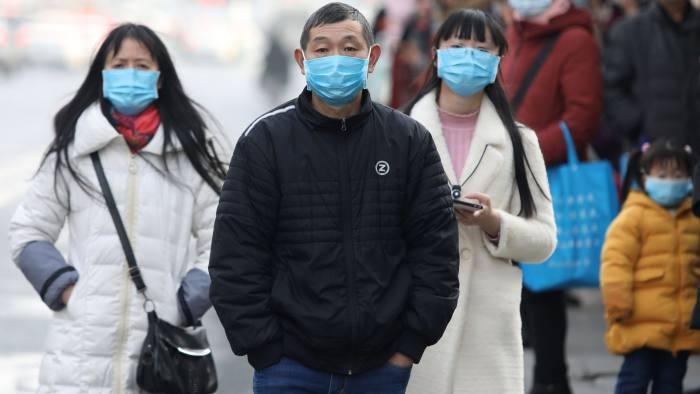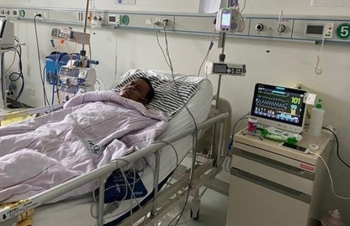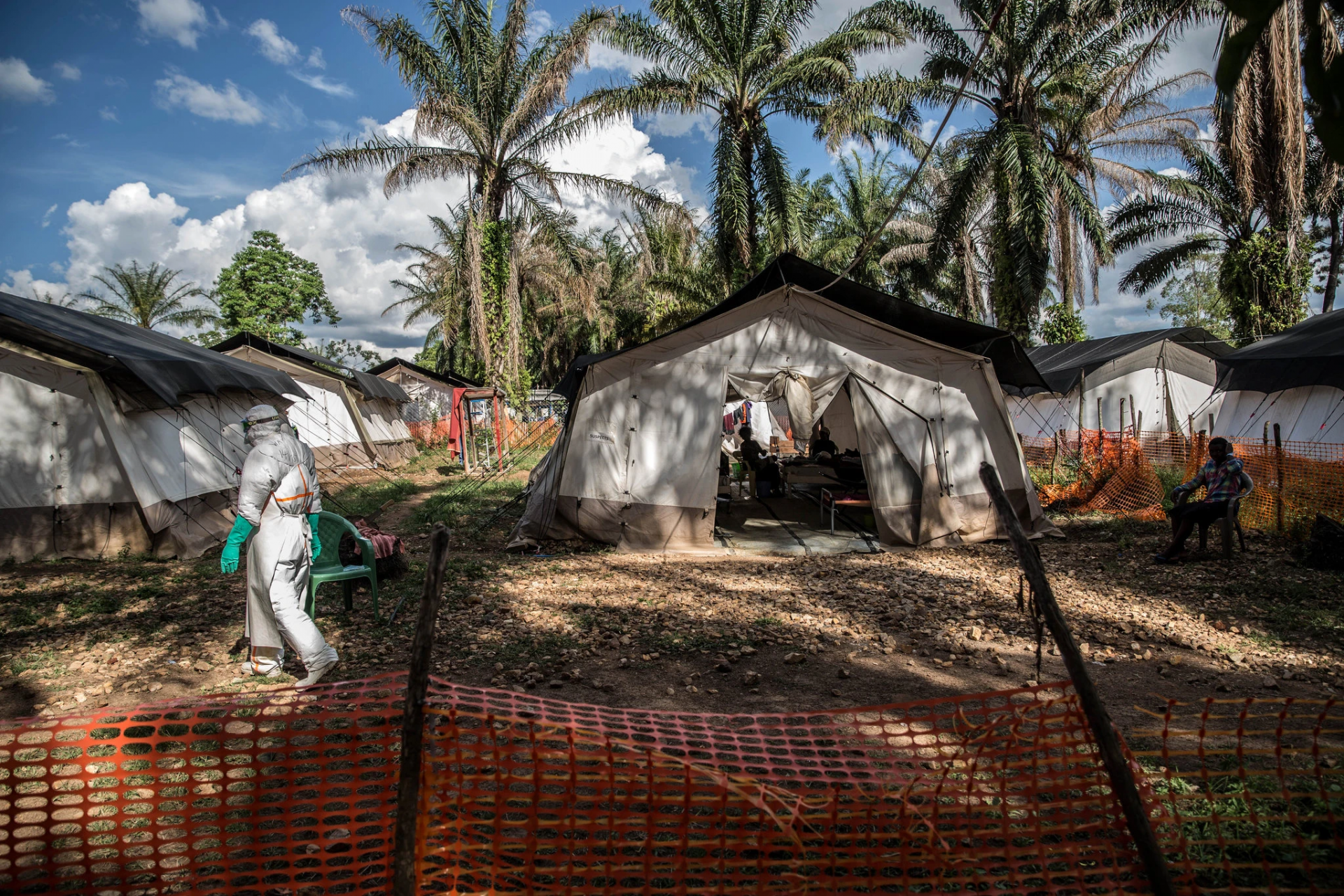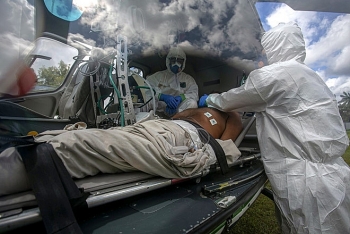WHO expert backtracks after saying asymptomatic transmission 'very rare'
 |
| (Photo: Getty Images) |
The clarification comes after the World Health Organization's original comments (WHO) incited strong pushback from outside public health experts, who suggested the agency had erred or at least miscommunicated when it said people who didn’t show symptoms were unlikely to spread the virus, Stat News said.
As reported by The Guardian, modelling studies estimate that up to 40% of coronavirus infections could be transmitted by people who have the virus but no symptoms, a World Health Organization expert has acknowledged after her comment on Monday that asymptomatic transmission was “very rare” caused a stir.
But Dr Maria Van Kerkhove, the WHO’s Covid-19 technical lead, maintained that real world data suggested it could still be a rare event when she took part in a social media Q&A to explain herself, saying she was not referencing the modelling studies when she spoke.
Dr. Van Kerkhove said that on asymptomatic transmission “we don’t have the answer yet”. Her comment at the WHO’s Monday press briefing about its rarity was based on two or three studies following up the contacts of asymptomatic people, and unpublished data shared by countries or experts with her organisation.
“I used the phrase ‘very rare’ and I think that it’s a misunderstanding to state the asymptomatic transmission globally is very rare. What I was referring to was a subset of studies. I was also referring to some data that isn’t published,” she said.
The technical lead said she did not mention the estimates of up to 40% because “those are from models”.
It was certain that asymptomatic infection happened, she said, but how often was still one of the great unknowns about Covid-19 that scientists were investigating. One of the complications is that some people who appear to be infected but asymptomatic are in fact pre-symptomatic – they can go on to, for instance, experience a mild course of disease. “They may not register that they are sick,” she said.
One of the critical issues is how long people are infectious before they develop symptoms and how infectious they are in the days before they are clearly ill. “It is not only who is transmitting to others, but when,” she said. “The data is very preliminary.” They were working with countries to get answers, she said.
It is possible that asymptomatic people do not have high levels of virus in their body. The main source of infection is droplet transmission through the air, but until people are ill enough to be coughing, for instance, they may not so easily transmit the infection.
“It appears that people have more virus in their body around the time they develop symptoms,” she said. That was different from the experience of Sars, which was an infection lower down the respiratory tract.
 |
| (Photo: BBC) |
Director of the WHO's health emergencies programme, Dr Michael Ryan, said he was "absolutely convinced" asymptomatic transmission was occurring, "the question is how much", according toBBC.
“With Covid-19, the infectious pathogen is in the upper airway where viral loads are peaking just as you are starting to feel sick,” said Dr Mike Ryan, the head of the WHO’s health emergencies programme.
There was a period of time when even a professor of infectious diseases would not be able to tell somebody they were ill without a test for the virus, he said, and they might feel fine but be at their most infectious. That was why the disease spread so easily, he said.
Meanwhile, Dr Van Kerkhove made the distinction between three categories:
- People who never develop symptoms (asymptomatic)
- People who test positive when they don't yet have symptoms - but go on to develop them (pre-symptomatic)
- People with very mild or atypical symptoms who do not realise they have coronavirus
Some reports distinguish between these categories while others do not and she said this, along with the relatively small groups of people studied, make it difficult to draw firm conclusions.
But Dr Van Kerkhove said the weight of evidence suggested people who never develop symptoms did not play a significant role in passing on the virus in the locations studied.
Studies which tested samples of the population to find asymptomatic cases, and then traced their contacts, found far fewer secondary infections than in the contacts of people who'd had symptoms.
This led the WHO, in guidance on wearing masks published at the weekend, to conclude: "The available evidence from contact tracing reported by member states suggests that asymptomatically-infected individuals are much less likely to transmit the virus than those who develop symptoms”, BBC reported.
 |
| (Photo: Financial Times) |
People with symptoms 'highest risk'
As reported by BBC, contact-tracing studies from a number of countries suggest that while "true" asymptomatic cases "rarely transmit" infection, transmission can occur before or on the day symptoms first appear when they may be very mild, according to Prof Babak Javid, an infectious diseases consultant at the University of Cambridge.
People can have detectable amounts of the virus in their system roughly three days before developing symptoms and appear to be capable to pass it on during this period, especially the day before or on the day symptoms begin.
Pre-symptomatic transmission has "important implications" for track, trace and isolation measures, Prof Javid said.
Under the terms of the contact-tracing schemes now operational across the UK, someone who passed on the infection while pre-symptomatic could still have their contacts traced once they developed symptoms. Someone who never experienced symptoms wouldn't trigger the same process.
While people without symptoms do seem to be capable of infecting others, current evidence still suggests people with symptoms are the highest risk.
A positive result alone doesn't tell you how much of the virus someone has in their system. And this - what is known as the viral load - along with whether an infected person is sneezing and coughing and what kind of contact they are having with other people, influences how likely they are to pass the illness on.
Dr Van Kerkhove pointed out since coronavirus mainly "passes through infectious droplets", it is when people are coughing or sneezing that they are most able to transmit the disease.
 | COVID-19 stricken Chinese doctor whose skin changed colour passed away Hu Weifeng, a doctor at Wuhan Central Hospital whose pigmentation darkened during his treatment in April, died Tuesday, becoming the sixth employee at Wuhan Central ... |
 | New Ebola outbreak in the northwest Democratic Republic of Congo The Government of the Democratic Republic of the Congo informed today that a new outbreak of Ebola virus disease is occurring in Wangata health zone, Mbandaka, ... |
 | World News Today: Minneapolis is under curfew after riots following George Floyd’s death World News Today May 30: Some twin cities suburbs in the US add curfews as Minneapolis and St. Paul go into night lockdown due to riots ... |
Recommended
 World
World
‘We stand with India’: Japan, UAE back New Delhi over its global outreach against terror
 World
World
'Action Was Entirely Justifiable': Former US NSA John Bolton Backs India's Right After Pahalgam Attack
 World
World
US, China Conclude Trade Talks with Positive Outcome
 World
World
Nifty, Sensex jumped more than 2% in opening as India-Pakistan tensions ease
Popular article
 World
World
Easing of US-China Tariffs: Markets React Positively, Experts Remain Cautious
 World
World
India strikes back at terrorists with Operation Sindoor
 World
World
India sending Holy Relics of Lord Buddha to Vietnam a special gesture, has generated tremendous spiritual faith: Kiren Rijiju
 World
World










